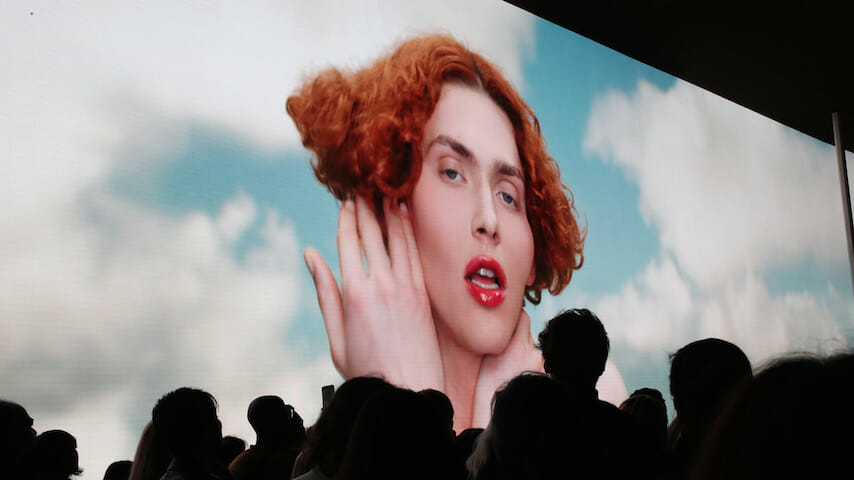SOPHIE Led Us Into the Future. Who Will Lead Us Now?
God is still Trans
Photo by Bertrand Rindoff Petroff/Getty
When did we start associating pop music with the future? Around the time of Purity Ring’s Shrines and Grimes’ Visions, the term “future pop” started getting thrown around to describe a certain glossy, highly processed synth music that sounded just as underground as it did immediate and pulse-pounding. And then it wasn’t so futuristic anymore. Purity Ring began writing for artists like Katy Perry, and their sound was emulated by Miley Cyrus and Taylor Swift. By the time they released their sophomore album, another eternity, their sound had not evolved—they sounded like those artists that had taken cues from them over the past few years.
The sonic innovation of Crystal Castles, iamamiwhoami and Grimes led to a jilted relationship with more mainstream pop music. Rather than fostering an equitable form of transference, pop relied on the percussive, vulnerable sounds of U.K. bass and bedroom electronic music. Pop respected the forward-thinking shift taking place in the electronic world, but failed to pass the baton conceptually.
In the interim, SOPHIE released her 2013 debut single “Nothing More To Say.” Within are three tracks that speak for themselves—energetic, dubby, with intense, ballroom vocals that twist and contort around candy-coated basslines. SOPHIE humbly undercut how simple her goals were in producing the EP, saying “I try to make music which is fun to dance to—that should be the loudest voice talking.” Though SOPHIE understates the effect of “Nothing More To Say,” her pure intentions were met with some acclaim; the track commands the dancefloor, and served as a prelude to the queer carnival SOPHIE would work towards crafting over the next several years.
-

-

-

-

-

-

-

-

-

-

-

-

-

-

-

-

-

-

-

-

-

-

-

-

-

-

-

-

-

-

-

-

-

-

-

-

-

-

-

-








































